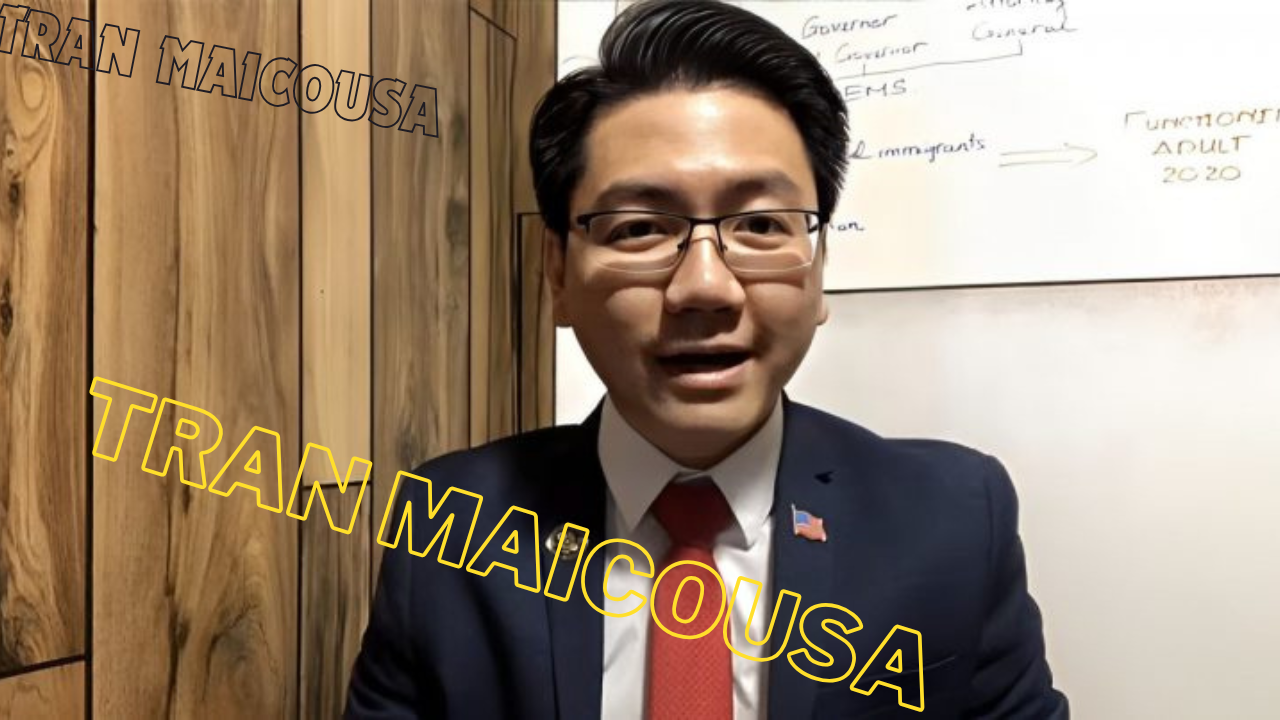In a world driven by rapid innovation and evolving terminology, some terms emerge that pique curiosity and demand exploration. One such term making waves in niche communities and professional spheres is Tran Maicousa. While it may not yet be a household name, it is gradually gaining attention due to its distinctive presence in digital conversations and specialized industries.
This article aims to unpack everything there is to know about Tran Maicousa—what it is, where it came from, why it’s important, and how it’s being used across various domains. Whether you’re a researcher, a curious learner, or someone who stumbled upon this term in a tech journal or online forum, you’ll find value in this deep-dive exploration.
We’ll walk through the origins of Tran Maicousa, examine its most common applications, assess its pros and cons, and take a glimpse into its future potential. Our goal is to provide you with a comprehensive understanding that’s both informative and engaging.
So, if you’ve ever wondered what Tran Maicousa is or why it’s becoming increasingly relevant, read on. This article will leave you with insights you won’t find anywhere else, tailored to help you make sense of this emerging concept.
What is Tran Maicousa
Tran Maicousa is a term that has recently surfaced in the context of emerging technologies and cross-disciplinary frameworks. Though still relatively obscure in mainstream discourse, it is believed to be a conceptual or proprietary system that integrates aspects of data intelligence, decentralized protocols, and adaptive learning environments. Some experts argue that Tran Maicousa may be a coined term combining linguistic roots from “transformation,” “machine,” and “consciousness,” hinting at its potential involvement with artificial intelligence or neural networks.
The origin of the term is still debated. Some suggest that it emerged from an internal codename used in an experimental tech project, possibly originating from a research lab or an innovative start-up. Others claim it was introduced in obscure academic papers or early-stage product documentation, which never reached the public domain until recently. Regardless of its roots, Tran Maicousa has started to represent a paradigm that seeks to unify machine learning, adaptive systems, and ethical AI governance.
Its flexibility as a concept allows it to be applied across various verticals, including biotechnology, smart infrastructure, and educational platforms. In these settings, Tran Maicousa might act as a guiding framework for integrating AI systems that not only perform tasks but also learn, adapt, and align with human values. In simpler terms, it can be thought of as a blueprint for responsible AI transformation, ensuring that progress doesn’t compromise core human-centric values.
Applications and Use Cases
Tran Maicousa has shown promise in a range of specialized use cases, especially where complex data analysis and adaptive decision-making are essential. In healthcare, for instance, researchers and technologists are exploring Tran Maicousa as a model for designing AI-powered diagnostic tools that can evolve through patient interactions. These systems not only detect symptoms but learn from unique patient profiles over time, thereby offering increasingly accurate and personalized treatment suggestions.
In the field of education, Tran Maicousa is being trialed as the backbone for intelligent tutoring systems. These platforms use algorithms that adapt content delivery based on a student’s cognitive patterns, learning pace, and retention levels. This ensures that learners receive information in formats best suited to their individual needs, a revolutionary step beyond standardized curriculum delivery.
Smart cities and infrastructure projects are also leveraging Tran Maicousa principles to manage real-time data on traffic, energy consumption, and emergency services. Here, the framework supports systems that learn from human behavior and adapt in real-time, improving efficiency and responsiveness. For example, traffic lights controlled by such systems could dynamically alter timings based on real-time congestion levels.
Another compelling use case lies in ethical AI development. As discussions around data privacy and algorithmic bias become more urgent, Tran Maicousa offers a methodology for embedding ethical guardrails into AI systems. This ensures that as machines learn and evolve, they do so within boundaries that protect human rights and promote fairness.
Benefits and Advantages

One of the most notable benefits of Tran Maicousa is its emphasis on adaptability. Traditional systems are often rigid, requiring manual updates and extensive reprogramming. Tran Maicousa-based frameworks, by contrast, are designed to learn autonomously and make informed decisions based on real-time data. This dramatically improves efficiency and responsiveness, especially in high-stakes environments like healthcare or emergency response systems.
Another major advantage is its potential to personalize user experiences. By interpreting user behavior and adjusting accordingly, Tran Maicousa-enabled systems can deliver tailored content, recommendations, or interventions. Whether it’s a student struggling with algebra or a patient with a rare disease, this level of personalization can lead to better outcomes and greater user satisfaction.
Moreover, Tran Maicousa’s holistic integration of ethical principles sets it apart. As concerns about AI’s social implications grow, the framework’s commitment to responsible learning algorithms ensures that technology development does not come at the expense of human dignity or equality. This ethical foresight makes it particularly appealing to institutions looking to future-proof their technological investments.
Finally, the scalability of Tran Maicousa means that it can be deployed in small-scale pilots and expanded into enterprise-wide solutions. Whether you’re an independent developer or a Fortune 500 company, the framework provides modular tools and best practices that can be tailored to your unique goals.
Challenges and Controversies
Despite its promise, Tran Maicousa is not without challenges. One of the major obstacles lies in its abstract nature. Because the term and framework are still relatively new and under-defined, there’s a lack of consensus on what exactly it encompasses. This ambiguity can create confusion among stakeholders and slow adoption, especially in industries that demand well-defined standards.
Another concern is the technological barrier to entry. Implementing Tran Maicousa requires a high level of technical expertise, including proficiency in machine learning, data science, and ethical algorithm design. Smaller organizations or under-resourced communities may struggle to adopt it effectively without significant investment in training and infrastructure.
There’s also the issue of transparency. As Tran Maicousa-based systems become more autonomous, ensuring that their decision-making processes remain transparent and interpretable becomes increasingly difficult. This has sparked debates within academic and tech circles about the ethical boundaries of adaptive algorithms and the need for oversight mechanisms.
Lastly, the concept has drawn skepticism from critics who question whether it’s a truly groundbreaking innovation or simply a rebranding of existing AI and data integration practices. Until there is more open-source documentation or academic validation, Tran Maicousa may continue to be viewed with caution by mainstream technology circles.
Future Outlook and Innovations
The future of Tran Maicousa looks both promising and complex. As the demand for ethical, adaptive, and intelligent systems grows, the framework could become a key component in next-generation technologies. Already, several research labs and tech incubators are exploring how to refine and scale Tran Maicousa for broader adoption.
We can expect to see increased integration with emerging technologies such as quantum computing, edge AI, and blockchain. These technologies can enhance Tran Maicousa’s capabilities, allowing for faster computation, secure data exchanges, and decentralized intelligence. Combined, they could usher in a new era of smart systems that not only learn and evolve but also maintain transparency and user control.
In education, we may see entire curricula designed around adaptive learning principles rooted in Tran Maicousa. In public services, municipalities might rely on such frameworks to design cities that “think” and “respond” dynamically to residents’ needs. The possibilities are expansive, and so is the opportunity for innovation.
However, the journey will require collaboration. Developers, ethicists, educators, and policymakers will need to work together to ensure that Tran Maicousa develops responsibly. If navigated well, it could redefine how we interact with technology in the years to come.
Conclusion
Tran Maicousa is more than just a buzzword—it’s a multifaceted framework with the potential to shape the future of intelligent systems. While still in its infancy, the concept represents a forward-thinking approach to adaptive learning, ethical AI, and user-centered innovation. From healthcare to education and beyond, Tran Maicousa offers scalable solutions designed to evolve alongside human needs.
As we look ahead, the importance of integrating technology with ethical awareness and adaptive intelligence cannot be overstated. Tran Maicousa is not merely a tool, but a philosophy for how we can—and should—build the future. Understanding it today gives us the power to harness its potential tomorrow.
FAQs
What does Tran Maicousa mean?
Tran Maicousa is a conceptual framework that blends adaptive systems, AI ethics, and data intelligence, designed to create responsive and human-aligned technologies.
Who created Tran Maicousa and why?
The origin is not definitively known but likely emerged from academic or experimental tech circles aiming to bridge the gap between machine learning and ethical practices.
Is Tran Maicousa available to the general public?
Currently, it is more conceptual and in experimental phases, but certain aspects are being adopted in specialized projects and sectors.
What industries commonly use Tran Maicousa?
Healthcare, education, urban planning, and ethical AI development are among the leading fields exploring its application.
Are there any known risks or side effects associated with Tran Maicousa?
Challenges include a high barrier to entry, lack of standardization, and transparency concerns regarding adaptive algorithms.
You May Also Read: https://techbusinessus.com/brian-rader/





